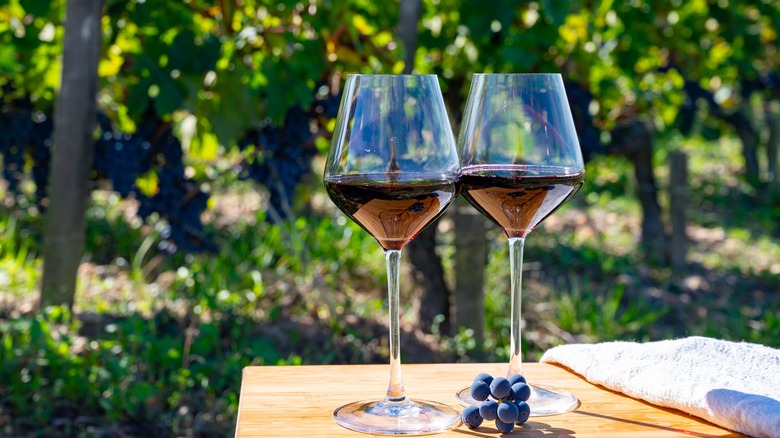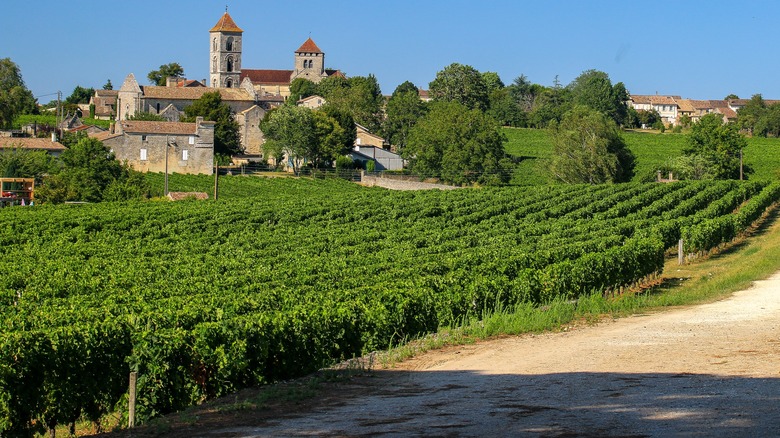Here's What It Really Means When Someone Says 'Claret Wine'
If you're a wine lover but don't recognize the word "claret," don't fret — it's not a popular wine term in every part of the world. Claret is simply a British way to refer to French Bordeaux wine, a blend of several types of red wines, traditionally Merlot, Cabernet Sauvignon, and Cabernet Franc. Bordeaux, or claret, is dark and full-bodied, normally served in a tall red wine glass with a wide bowl to showcase its bold flavors. Claret is sometimes listed on wine labels in countries outside of France. The British media and wine industry still use the term today when referencing Bordeaux red wine, and the U.K. government recognizes claret as an official wine term.
American winemakers will use the term claret on a wine label if they're making a red wine in the style of Bordeaux. In this case, even though the wine is made with the same blend of grapes as a Bordeaux wine, the bottle technically can't be labeled as such because it's not made in the Bordeaux region of France. In the United States, claret is not a protected title and, therefore, does not officially mean anything.
Is there a difference between claret and clairet wine?
Interestingly, the term "claret" is derived from "clairet," but the two terms refer to different styles of wine. The latter is a French word that originally referred to a wine from Bordeaux that fell somewhere between a light red wine or a dark rosé. Bordeaux wine was a popular drink back in Medieval England, and it became an important trade commodity between the two countries.
Throughout the years, the term "clairet" morphed into "claret" (the more English way to spell the original French word), and continued to be used to refer to any wines from Bordeaux, including the darker, more full-bodied red blend wines that were being produced in the same region. Today, it is even less common to see the term clairet on a wine label bottle, but this wine remains separate and distinct from claret. The title "Bordeaux Clairet" has an official designation in France, and the title is reserved for dark rosé wines from the region.

